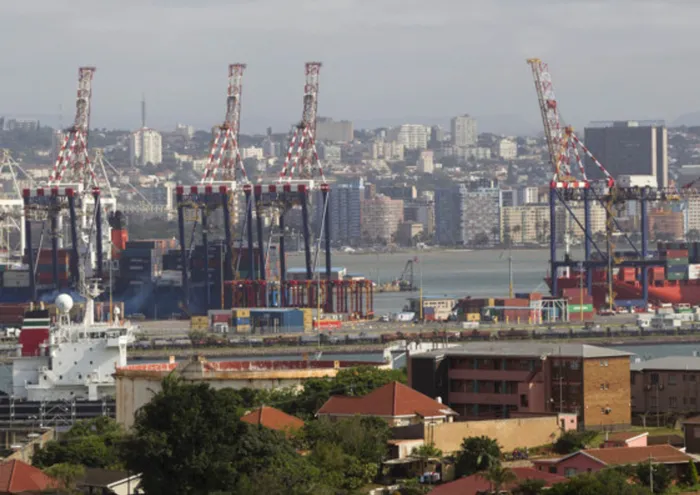
A general view of the Durban Harbour with the city skyline in the background. A general view of the Durban Harbour with the city skyline in the background.
Durban - Popular former Durban mayor, Obed Mlaba, who is the South African high commissioner to the UK, this week launched a charm offensive to help Deputy Transport Minister Sindisiwe Chikunga sell our oceans to potential investors in the hope of boosting the economy and job creation.
At a seminar in London on Tuesday, attended by ship builders, maritime transporters and a range of maritime investors, Chikunga announced that South Africa’s 2030 National Development Plan’s (NDP) aim was to grow the economy significantly, and eventually eliminate unemployment and poverty.
The Oceans Economy investment seminar was part of Operation Phakisa, an initiative focused on unlocking the potential of the country’s seas. Chikunga referred to the KwaZulu-Natal coastline as an economic gateway which will improve the country's gross domestic product margin.
Speaking to the Sunday Tribune on Friday, Mlaba said that the response from potential investors had been “exciting and overwhelming”.
He said Durban’s port was the largest handler of container cargo on the continent, while Richards Bay handled 44 percent of the country’s seaborne cargo. Mlaba said massive improvements to its ports were planned under the auspices of Operation Phakisa. An aquaculture farming project in Amatikulu, in the north of the province, had proved particularly attractive to UK investors at the seminar, and possessed the potential to create thousands of jobs for unemployed locals, he said.
“There are huge opportunities for port developments and our coastline has great potential for both export and import. Everybody stands a chance to benefit from these projects.
“I was impressed by the level of preparedness and professionalism that our experts showed in their presentations to UK investors. This was us saying to them, ‘we are open for business, please come’. We structured the seminar in such a way that there would be ample time for one-on-one conversation and relationship-building.”
He said Operation Phakisa would focus on four growth areas: marine transport and manufacturing, offshore oil and gas exploration, aquaculture, and marine protection services.
In her address, Chikunga said the success of the maritime economy would be largely dependent on the level of co-operation between the two countries. She said it was time for South Africa to develop its own fleet and emphasis would be placed on the development of skills among women and their absorption into the industry, as they played a pivotal role in improving the lives of the poor.
“We need to strengthen and develop business ownerships in the maritime sector. Coastal shipping could be a major boost to the country's economy. I encourage everyone to become part of this amazing project.”
Chikunga said another aspect of the discussions in London had been the potential for harnessing the power of the oceans to generate electricity. She said that great interest had been shown by around 100 potential investors, but they had expressed concern at the shortage of engineers in the country to fill key posts.
However, she was optimistic the situation would be reversed if the right opportunities were created.
“We expect our highly skilled personnel, plying their trade abroad, to come back because there are limitless opportunities available in the ocean sector.”
Sunday Tribune